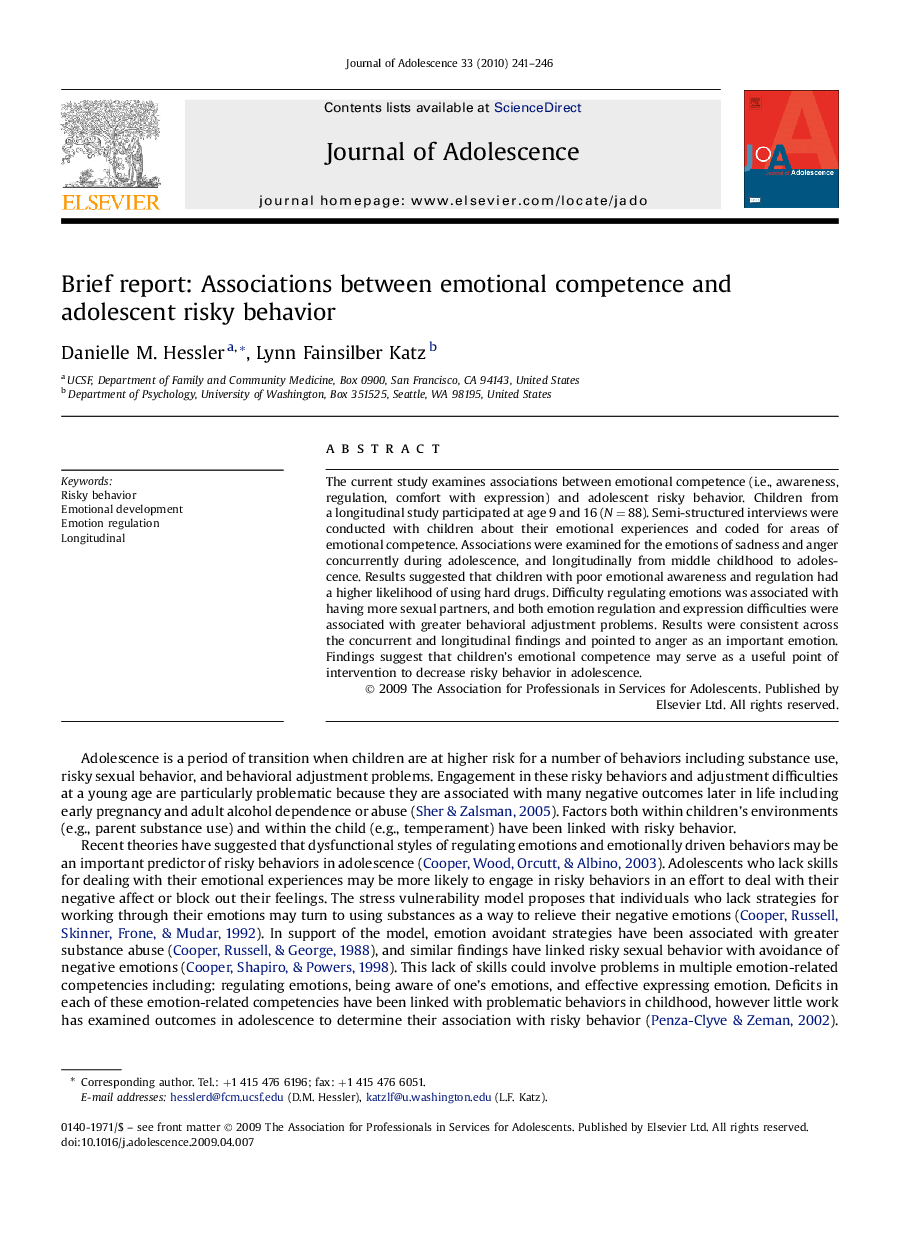| Article ID | Journal | Published Year | Pages | File Type |
|---|---|---|---|---|
| 881021 | Journal of Adolescence | 2010 | 6 Pages |
The current study examines associations between emotional competence (i.e., awareness, regulation, comfort with expression) and adolescent risky behavior. Children from a longitudinal study participated at age 9 and 16 (N = 88). Semi-structured interviews were conducted with children about their emotional experiences and coded for areas of emotional competence. Associations were examined for the emotions of sadness and anger concurrently during adolescence, and longitudinally from middle childhood to adolescence. Results suggested that children with poor emotional awareness and regulation had a higher likelihood of using hard drugs. Difficulty regulating emotions was associated with having more sexual partners, and both emotion regulation and expression difficulties were associated with greater behavioral adjustment problems. Results were consistent across the concurrent and longitudinal findings and pointed to anger as an important emotion. Findings suggest that children's emotional competence may serve as a useful point of intervention to decrease risky behavior in adolescence.
